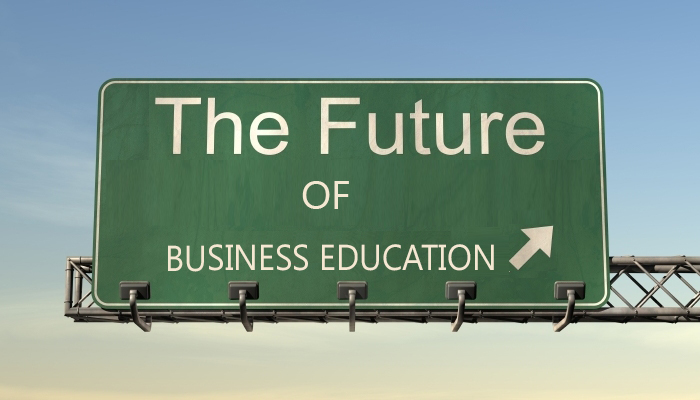Future of Business Education

Businesses have moved to the 21st century and ironically Business Education still remains a legacy of the 20th century. Business schools across the world are supposed to educate and prepare the industry leaders of tomorrow. Yet, a Gallup study of 2014 concludes that only 33% of business leaders across the globe agree B-school graduates have the required knowledge and skills their businesses need in a rapidly changing environment. The ironic divide between academia and industry seems to be increasing every year.
The recent economic collapse and the spate of corporate misdeeds also play a significant role in the crisis of current business education. The challenges that face business education can be illustrated by answering the following critical questions:
- How can business education significantly enhance stakeholder value?
- How can business research provide practical applicatons for industry?
- How can evolving technology challenge the current model of business education?
- How can ethical leadership be embedded across business education and industry?
- And lastly, what should these schools and industries do differently to prepare the next generation of global business leaders?
While students look for ROI and employers look for holistically prepared graduates, the world looks for people who can impact and influence. The need of the hour is for business schools to become disruptive. They need to challenge themselves to make their currriculum relevant and future-ready. This means that business school leaders need to radically re-invent everything from the ground up, including the curriculum and pedagogy. The current residential learning model has to move forward with blended learning, simulations, flipped classrooms, experiential learning and gamification. Consequently, current faculty models also need to be challenged and new faculty competencies need to be developed like mentoring, design thinking, project management, applied research, and design and delivery of content.
If business education needs to be relevant for the 21st century, it needs to tap the potential of millennials who are keen on not just making money but also making an impact. To educate the millennial generation, which is always in a hurry, B-school education has to be innovative, engaging and exciting. This can be done through the fusion of technologies and multimedia. In an innovatable, globalised business environment, these B-school graduates need to be trained on other intelligences beyond the conventional numerical, logical and language competencies. These include global intelligence, cultural intelligence, social intelligence, spiritual intelligence and even gender intelligence.
The recent advances in neuroscience have also shed some interesting insights on learning and education. Applying this knowledge we need to create cutting edge curriculum that encompasses whole brain thinking. For B-schools to become relevant, a conscientious effort needs to be made to forge strategic partnerships with the industry. With these interventions, B-schools of the 21st century can not only be relevant, but make a significant impact on societal development.
(Prof. Christopher Abraham, Professor and Head of Campus (Dubai))



